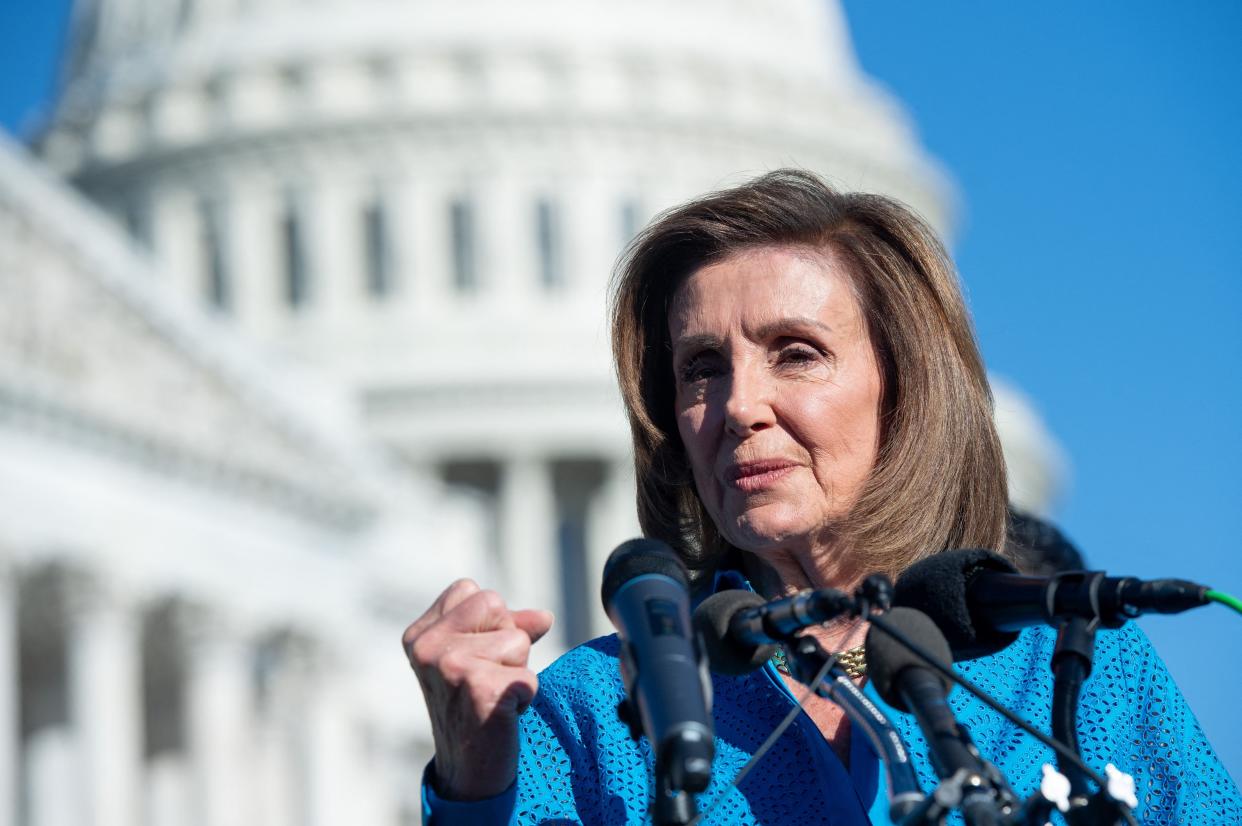Biden faces crucial stretch for his domestic agenda:‘Victory is what’s at stake’
President Biden faced a daunting and potentially decisive week for his domestic agenda on Monday, as two core elements of his economic plan balanced on a legislative razor blade and top Democrats dug in to avert a government shutdown.
The president is working to ensure passage of his $1 trillion bipartisan infrastructure bill and his $3.5 trillion spending blueprint, which carries ambitious climate provisions and enhancements to the social safety net. But internal Democratic squabbles have imperiled Biden’s plans amid rigid Republican resistance, and the White House must also manage the risk posed by a possible government shutdown at week’s end.
Republicans have balked at a measure to increase the country’s debt limit, putting government funding in the crosshairs ahead of a Thursday deadline.
The House is also due to vote on the $1 trillion infrastructure measure on Thursday, after Speaker Nancy Pelosi (D-Calif.) pushed the vote back from Monday. Progressives want to put infrastructure off until the expansive budget plan is completed.
Discussing the make-or-break week on Monday afternoon, Biden told reporters: “Victory is what’s at stake.” Even as he acknowledged the win might not come this week, he expressed confidence in the fate of his bold budget blueprint, predicting that legislators are “going to get it done.”

The $3.5 trillion legislation appears to face twin roadblocks from the Democratic side of the aisle. Sens. Joe Manchin (D-W.V.) and Kyrsten Sinema (D-Ariz.) have voiced resistance to passing such a large bill, and Pelosi said Sunday on ABC News that it “seems self-evident” the price tag will drop.
Democrats have little room for error in the House, where Pelosi is working with an eight-seat Democratic advantage, or in the evenly split Senate, where Majority Leader Chuck Schumer (D-N.Y.) can call on Vice President Kamala Harris to break ties. Biden is relying on Pelosi and Schumer to get his two bills through the gauntlet.
“The president is very committed to this agenda,” Jen Psaki, the White House press secretary, said in a Monday news conference. “He thinks that it’s far past time to rebuild our roads, rails and bridges. He thinks it is far past time to ensure we’re doing what’s needed to address the climate crisis. He thinks it’s far past time to lower costs for working families.”
But Republicans say that the government can’t stomach the spending bonanza and have criticized Democrats for not working with them on the sprawling spending blueprint. The Democrats aim to boost the corporate tax rate on businesses earning more than 5 million — from 21% to 26.5% — and to lift the top tax rate on individuals from 37% to 39.6%.
The $3.5 trillion bill, which the Democrats intend to shield from a filibuster through a process called reconciliation, has yet to pass the House or the Senate. The $1 trillion infrastructure bill was approved by a 69-to-30 vote in the Senate in August, before facing headaches in the House.

Pelosi has suggested that a deal on the reconciliation bill spanning the House and Senate could be hammered out this week. But that’s not expected until late in the week, if at all.
Perhaps the greatest challenge for Democrats appeared to rest in the Senate, where Schumer was tasked with securing blanket Democratic support for the spending plan. On Monday, he found himself balancing that objective with the debt threat.
Speaking on the floor of the Senate, Schumer accused the Republicans of playing a dangerous game with the debt ceiling, warning that the U.S. could spiral into a recession if the country can’t pay its bills.
“I want my Republican colleagues to think carefully about the practical consequences of what they are doing,” he said. “There is no scenario in God’s green earth where it should be worth risking millions of jobs, trillions in household wealth, people’s Social Security checks, veterans benefits and another recession just to score short-term, meaningless political points.”

Moody’s Analytics, a financial analysis firm, estimated in a report last week that a government default could lead to the loss of 6 million jobs.
Still, Minority Leader Mitch McConnell (R-Ky.) fired back on the Senate floor that he had no intention of supplying GOP votes to boost the debt ceiling.
“There is no chance Republicans will help lift Democrats’ credit limit so they can immediately steamroll through a socialist binge that will hurt families and help China,” McConnell said.
Shortly after 6 p.m. in Washington, the Senate voted down a motion to begin debate on extending government funding. And the challenge for the Democrats deepened.
With News Wire Services
